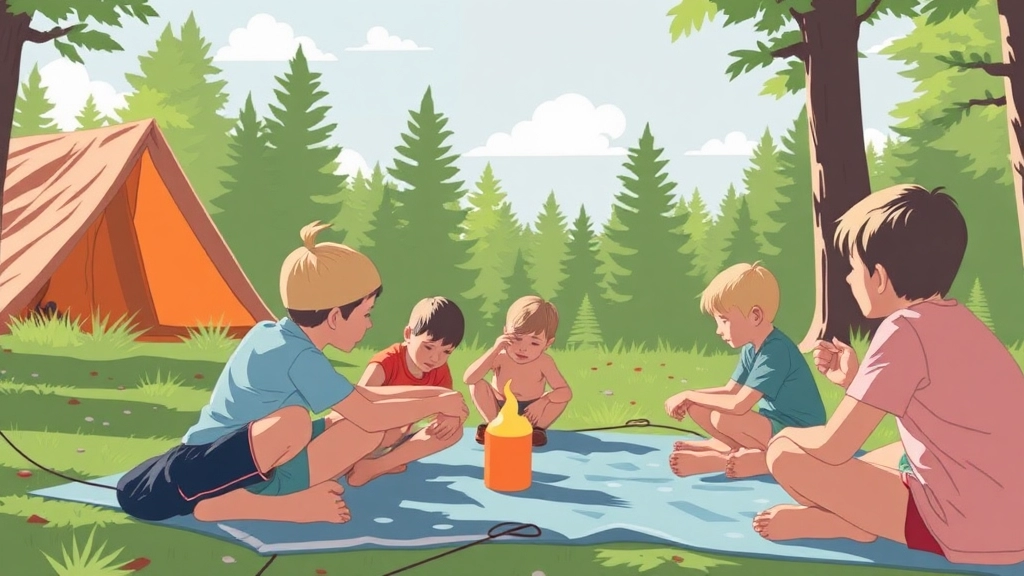Exploring the World of Summer Camps
Ever wondered what makes a summer camp mean so much to kids and parents alike? This article dives deep into the multifaceted world of summer camps, exploring their evolution, types, and the invaluable role they play in childhood development. From traditional outdoor adventures to specialized camps in music, arts, and STEM, summer camps offer a unique blend of learning and fun that fosters independence, confidence, and lifelong friendships.
We’ll uncover why parents choose summer camps for their kids, the social skills honed during these experiences, and the emotional impact they leave on young minds. Whether you’re a parent seeking the right camp for your child or simply curious about the magic behind these summer getaways, this comprehensive guide will provide insights and tips to make an informed decision. Let’s embark on this journey to understand what a summer camp truly means!
What is a Summer Camp?
Alright, let’s cut to the chase. What exactly is a summer camp? If you’re a parent or a kid, you’ve probably heard the term thrown around a lot. But what does it actually mean?
Summer camp is essentially a place where kids and teens go during their summer holidays to participate in various activities, learn new skills, and make friends. Think of it as a fun, educational, and often life-changing experience that happens over a few days or weeks.
What Happens at a Summer Camp?
So, what do kids actually do there? Well, it depends on the type of camp, but here’s a general rundown:
- Outdoor Activities: From hiking and swimming to archery and campfires, the great outdoors is usually a big part of the experience.
- Skill Development: Whether it’s learning how to pitch a tent, cook over a fire, or even code a robot, summer camps offer a variety of skills that aren’t typically taught in schools.
- Social Interaction: One of the biggest perks is meeting new people. Kids form friendships that can last a lifetime.
Why Do Summer Camps Exist?
Ever wondered why summer camps are even a thing? Here’s the scoop:
- Historical Roots: Summer camps started in the late 19th century in the United States as a way to get kids out of the city and into nature.
- Modern Evolution: Today, they’ve evolved to include a wide range of activities and specialisations, from traditional camping to tech and sports camps.
The Real Questions Parents Have
Parents, I know you’re wondering:
- Is it safe? Most camps have strict safety protocols, trained staff, and emergency plans.
- Is it worth the money? The skills, experiences, and friendships your child gains often make it a worthwhile investment.
- Will my child enjoy it? With so many types of camps available, there’s likely one that will match your child’s interests.
Why Kids Love Summer Camps
Kids, let’s be real. Summer camps are awesome because:
- Freedom: It’s a break from the usual routine and schoolwork.
- Adventure: You get to try new things and push your boundaries.
- Friendship: It’s a great way to meet new people and make lifelong friends.
The Evolution of Summer Camps in America
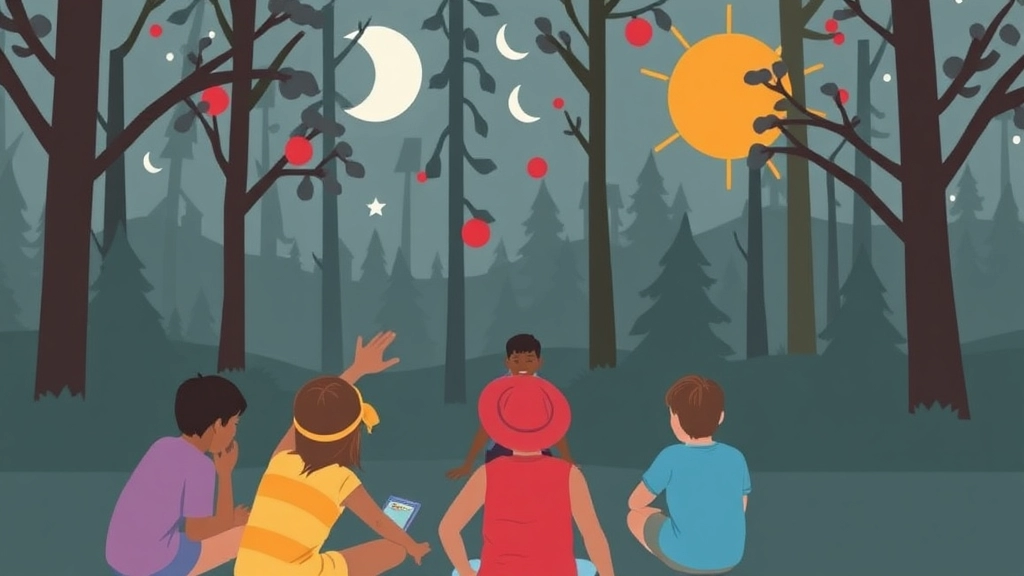
Ever wondered how summer camps became such a staple in America?
Let’s dive into the history.
Summer camps started popping up in the late 19th century.
Why?
Parents wanted their kids to escape the hustle and bustle of urban life.
Nature was the answer.
These early camps focused on outdoor activities like hiking, fishing, and campfires.
Fast forward to the 20th century.
Camps began to diversify.
Why the change?
America was changing.
Families wanted more than just outdoor fun for their kids.
Educational camps started to appear.
Think language immersion, science camps, and even art-focused camps.
The 1980s and 1990s brought another shift.
Technology was booming.
Parents wanted their kids to stay ahead of the curve.
Enter tech camps and STEM camps.
Kids could now learn coding, robotics, and other high-tech skills.
Today, the options are endless.
From sports to adventure, from music to cooking, there’s a camp for every interest.
Why does this matter?
Because it shows how adaptable and responsive summer camps have been.
They’ve evolved to meet the needs and interests of each new generation.
And that’s why they remain so popular.
Looking for the right camp for your child?
Check out our guide on Finding the Right Summer Camp for Your Child.
Want to know more about the different types of camps?
Read our section on Types of Summer Camps.
From traditional to specialised, there’s something for everyone.
Summer camps have come a long way.
And they’re here to stay.
Types of Summer Camps (Traditional, Sports, Adventure, STEM, etc.)
Ever wondered what kind of summer camp is best for your kid? Trust me, you’re not alone. Choosing the right camp can feel like picking the right schoolâit’s a big deal. But don’t worry, I’ve got you covered. Let’s break down the different types of summer camps out there.
Traditional Summer Camps
Traditional summer camps are the classics, the OGs. Think of those camps you see in moviesâcanoeing, campfires, and bunk beds. These camps offer a mix of activities like arts and crafts, swimming, hiking, and team sports. They’re perfect for kids who want a bit of everything.
Sports Camps
Got a budding athlete at home? Sports camps are where it’s at. These camps focus on specific sports like football, basketball, tennis, or swimming. They’re designed to help kids improve their skills while having a blast. Plus, they get to meet other kids who share the same passion.
Adventure Camps
For the thrill-seekers and nature lovers, adventure camps are a dream come true. These camps offer activities like rock climbing, kayaking, zip-lining, and wilderness survival. They’re all about pushing boundaries and building resilience. If your kid loves the great outdoors, this is the way to go.
STEM Camps
Science, Technology, Engineering, and MathematicsâSTEM camps are the future. These camps focus on robotics, coding, engineering projects, and scientific experiments. They’re fantastic for kids who are curious about how things work and love problem-solving. For more details, you can check out our AI Summer Camps guide.
Specialised Camps
Sometimes, kids have niche interests that regular camps don’t cover. That’s where specialised camps come in. Whether it’s music, arts, cooking, or even chess, there’s a camp for it. These camps allow kids to dive deep into their passions and hone their skills. If your child is a culinary enthusiast, consider looking into our Summer Cooking Camps for more information.
So, why does this matter? Knowing the different types of camps can help you make an informed decision. You want your kid to have fun, but you also want them to grow and learn. Each type of camp offers unique benefits, and the right choice can make all the difference.
Quick Tips to Choose the Right Camp:
- Identify your child’s interests. Are they sporty, artsy, or science geeks?
- Consider their personality. Do they thrive in groups or prefer solo activities?
- Look at the camp’s reputation. Read reviews, talk to other parents, and check out the camp’s credentials.
- Think about location and cost. Sometimes, the best camp isn’t the most expensive one.
Choosing the right summer camp can set your child up for an unforgettable experience. From building new skills to making lifelong friends, summer camps offer a lot more than just a break from school. So, take your time, do your research, and pick a camp that will make your kid’s summer epic.
The Role of Summer Camps in Childhood Development
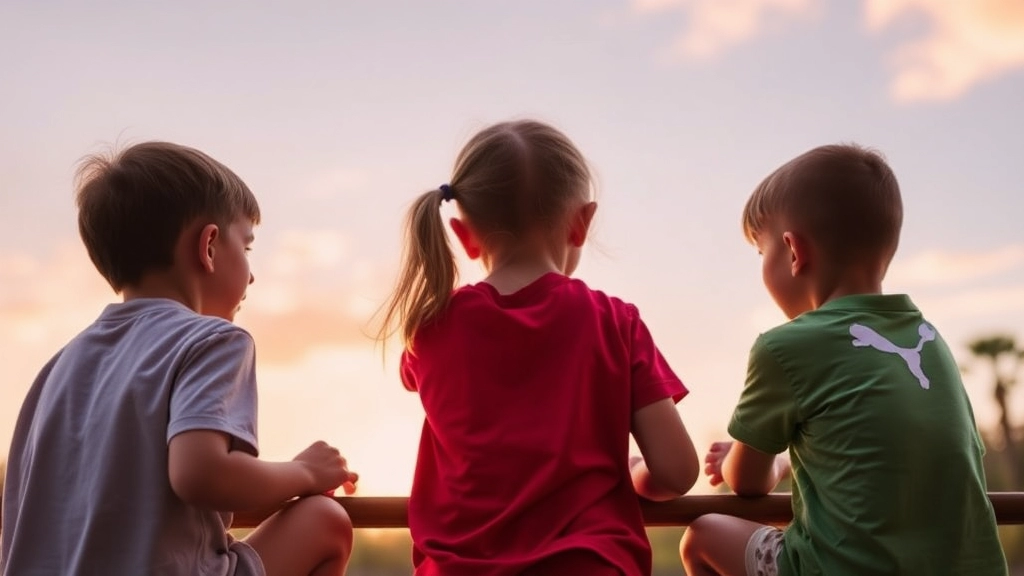
Ever wondered why summer camps are such a big deal for kids?
Why do parents rave about them?
Well, it’s because summer camps play a massive role in childhood development.
Let’s break it down.
Building Social Skills
Kids meet new friends.
They learn to work in teams.
They figure out how to handle conflicts.
All these social skills are crucial for life.
Encouraging Independence
At camp, kids are on their own.
No parents to solve their problems.
They learn to make decisions.
They gain confidence in their abilities.
Boosting Physical Health
Running around, playing sports, swimming.
These activities keep kids active.
They develop motor skills.
They learn the importance of staying fit.
Fostering Emotional Growth
Kids face challenges at camp.
They learn to cope with homesickness.
They experience a range of emotions.
This helps them build emotional resilience.
Promoting Creativity
Camps offer arts, crafts, music, and drama.
Kids get to express themselves creatively.
They discover new passions.
They develop problem-solving skills.
Enhancing Academic Skills
Many camps focus on STEM, reading, and other academic areas.
Kids learn in a fun, engaging way.
They keep their brains active during the summer.
Real Stories, Real Impact
Take Sarah, for instance.
She was shy and introverted.
After a summer at camp, she came back more confident.
She made friends, tried new activities, and learned to believe in herself.
Or consider Jack.
He struggled with teamwork.
At camp, he learned to collaborate on projects.
He came back with better social skills and a sense of accomplishment.
Why It Matters
Summer camps aren’t just about fun.
They’re about growth.
They help kids develop into well-rounded individuals.
They prepare them for the real world.
Social Skills Learned at Summer Camps
Ever wonder why kids come back from summer camp with a whole new vibe? It’s not just the fresh air and outdoor fun; it’s the social skills they’ve picked up along the way. Let’s dive into what makes summer camps a social skills powerhouse.
Why Social Skills Matter
First off, why should you care about social skills? Simple. They’re the backbone of your child’s future. From making friends to acing job interviews, social skills are the unsung heroes of success. At summer camp, kids get a crash course in these essential life skills.
Teamwork and Collaboration
One of the first things kids learn at camp is teamwork. Whether it’s a group project or a team sport, working together is non-negotiable. Here’s what they get out of it:
- Communication: Kids learn to express their ideas clearly and listen to others.
- Problem-Solving: Facing challenges as a team teaches them to think critically and find solutions.
- Empathy: Understanding different perspectives builds emotional intelligence.
Making New Friends
For many kids, camp is the first time they’re away from home and their usual social circles. This is where they learn the art of making new friends. It’s not just about saying “hi”; it’s about building meaningful relationships.
- Ice-Breaker Activities: Camps are packed with activities designed to help kids open up.
- Shared Experiences: Whether it’s a campfire story or a team victory, shared experiences create strong bonds.
- Conflict Resolution: Disagreements happen, and camps teach kids how to resolve them constructively.
Leadership Skills
Leadership isn’t just for the captains of the football team. At camp, every kid gets a shot at leading, whether it’s organizing a game or taking charge of a group task.
- Decision-Making: Kids learn to make choices and take responsibility for the outcomes.
- Motivating Others: Encouraging peers and boosting morale are key leadership traits.
- Time Management: Balancing activities and responsibilities helps kids manage their time effectively.
Independence and Confidence
Summer camps are a breeding ground for independence and confidence. Away from the safety net of home, kids learn to rely on themselves and trust their instincts.
- Self-Reliance: From packing their own bags to managing their daily schedule, kids learn to take care of themselves.
- Risk-Taking: Trying new activities and stepping out of their comfort zone builds confidence.
- Achievement: Completing tasks and overcoming challenges gives kids a sense of accomplishment.
Real Stories, Real Impact
Let’s keep it real. I’ve seen kids who were shy and reserved transform into confident leaders after just a few weeks at camp. One camper, for instance, was terrified of public speaking. By the end of the summer, she was leading group discussions and even gave a speech at the closing ceremony.
Why Parents Choose Summer Camps for Their Kids
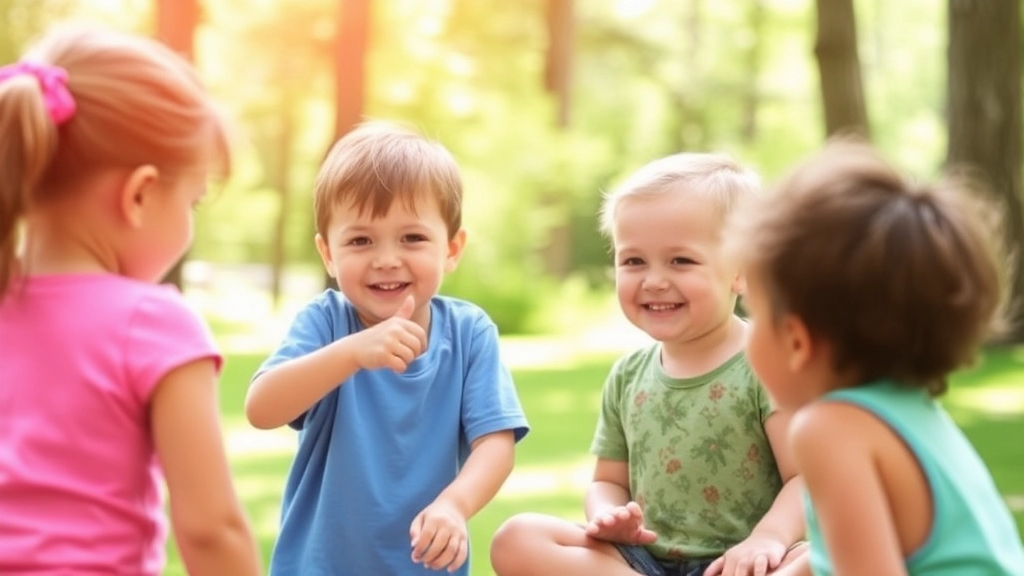
Ever wondered why parents send their kids to summer camps?
Let’s dive right in.
Keyword: Why parents choose summer camps for their kids.
Parents have a ton of reasons, and it’s not just about getting a break.
1. Development of Social Skills
Kids learn to interact.
They make friends outside their usual circle.
Social skills are huge here.
Think about it:
- Communication: They talk, share, and listen.
- Teamwork: They work together on projects and games.
- Conflict Resolution: They learn to solve problems without mum or dad stepping in.
2. Unplugging from Technology
Parents worry about screen time.
At camp, kids are too busy to scroll.
They’re out there:
- Playing sports.
- Exploring nature.
- Creating art.
3. Building Independence
Camps push kids out of their comfort zones.
They handle things on their own.
This builds independence.
They learn to:
- Make decisions.
- Take responsibility.
- Solve problems.
4. Boosting Confidence
Ever seen a kid conquer a climbing wall?
Their confidence skyrockets.
Camps are packed with challenges.
Each victory boosts their self-esteem.
5. Learning New Skills
Camps offer a buffet of activities.
From archery to coding.
Kids try new things and find new passions.
6. Physical Activity
Parents want their kids active.
Camps are a playground of physical activities.
Kids run, jump, swim, and play.
7. Emotional Growth
Camps are about more than just fun.
They help kids grow emotionally.
They learn empathy and resilience.
8. Safe Environment
Parents trust camps.
They’re safe spaces with trained staff.
Kids are in good hands.
9. Making Lifelong Memories
Camps create unforgettable experiences.
Kids come home with stories and friendships that last a lifetime.
10. Academic Break
Kids need a break from school.
Camps give them a chance to relax and recharge.
How Summer Camps Build Independence and Confidence
Ever wondered why summer camps are such a big deal? If you’re a parent, you’ve probably asked yourself, “Is sending my kid to camp really worth it?” Well, let’s break it down and see how summer camps can actually build independence and confidence in your child.
The Magic of Independence
Summer camps are a goldmine for fostering independence. Think about itâyour child is away from home, making decisions without you hovering over them. This might sound a bit scary at first, but it’s actually a good thing. Here’s why:
- Decision-Making: Kids get to make their own choices, from what activities to join to how to solve problems that come up.
- Responsibility: They learn to take care of their own stuff, like keeping their bunk clean or managing their schedule.
- Problem-Solving: When faced with challenges, they can’t just run to you. They have to figure things out on their own.
And guess what? These are life skills that will stick with them forever.
Confidence Boosters
Now, let’s talk confidence. Summer camps are like a gym for your child’s self-esteem. Here’s how:
- New Skills: Whether it’s learning to swim, mastering a new sport, or even cooking, acquiring new skills gives kids a sense of accomplishment.
- Social Interaction: Meeting new people and making friends boosts social confidence. They learn how to communicate, compromise, and collaborate.
- Leadership Opportunities: Camps often have roles or activities where kids can take the lead, helping them discover their strengths and build leadership skills.
Real-Life Examples
Let me share a quick story. I remember a kid named Jamie who was super shy and wouldn’t speak up in class. After a summer at camp, he came back a different person. He had led a team in a scavenger hunt and even performed in a talent show. His teachers were amazed at his newfound confidence.
Practical Tips for Parents
If you’re still on the fence about sending your kid to camp, here are a few practical tips:
- Start Small: If your child is anxious, start with a day camp before moving on to overnight camps.
- Involve Them in the Decision: Let your child have a say in choosing the camp. This makes them feel more in control and excited about the experience.
- Prepare Together: Go over the camp schedule and pack together. This helps alleviate any fears and builds anticipation.
For more insights on how to choose the perfect camp, check out our Ultimate Guide to Summer Camps for Kids. And if you’re looking for budget-friendly options, don’t miss our Affordable Summer Camps: Tips and Choices for 2024.
Unique and Specialized Camps (Music, Arts, Cooking, etc.)
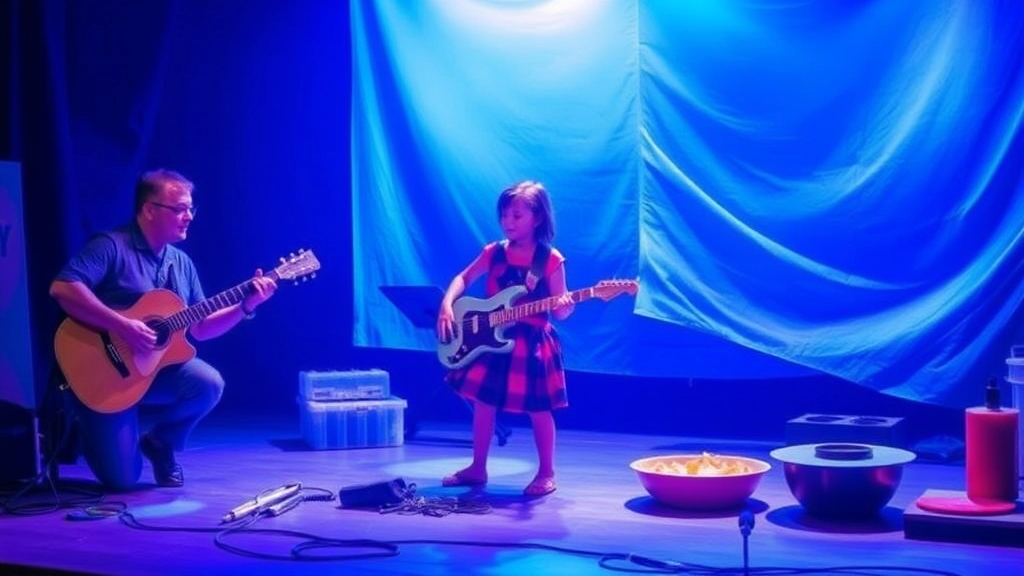
Ever wondered if a summer camp could cater to your child’s unique passions?
Maybe they’re a budding musician, an aspiring chef, or a young Picasso.
Specialised camps are the answer.
These camps zero in on specific interests, giving kids a chance to dive deep into what they love.
Why Choose a Specialised Camp?
Let’s get real.
Kids have unique talents and interests.
Why not nurture these during the summer?
Benefits include:
- Focused Learning: They get to spend time honing their skills.
- Expert Guidance: Often led by professionals in the field.
- Like-minded Peers: They’ll meet other kids who share their passion.
Types of Specialised Camps
Music Camps
Got a child who can’t stop singing or playing an instrument?
Music camps offer:
- Instrumental Training: From guitar to violin.
- Vocal Coaching: Perfect for young singers.
- Band and Orchestra Opportunities: Play with others and learn teamwork.
Arts Camps
For the young artist in your life, arts camps provide:
- Drawing and Painting Classes: Basics to advanced techniques.
- Sculpture and Ceramics: Hands-on creativity.
- Digital Art: For the tech-savvy artist.
Cooking Camps
Perfect for kids who love to be in the kitchen.
Cooking camps offer:
- Basic Cooking Skills: Knife skills, food safety.
- Baking Classes: From cookies to cakes.
- International Cuisine: Explore flavours from around the world.
Real Stories, Real Impact
Let me tell you about Sarah.
She attended a music camp last summer.
She came back with improved piano skills and new friends who share her love for music.
Her confidence skyrocketed.
Or take Jack, who went to a cooking camp.
He now cooks dinner for the family once a week.
These camps aren’t just about learning; they’re about growing.
Choosing the Right Specialised Camp
Here’s how to find the best fit:
- Research: Look into camp credentials and reviews.
- Visit: If possible, tour the camp.
- Talk: Speak with camp directors and instructors.
- Trial Classes: Some camps offer these to give a taste of what’s to come.
Final Thoughts
Specialised camps are a fantastic way to nurture your child’s unique interests.
They provide focused learning, expert guidance, and a community of like-minded peers.
So, if your child has a specific passion, consider a specialised camp this summer.
It could be the experience that shapes their future.
And remember, finding the right camp is crucial.
Do your research, ask questions, and make sure it aligns with your child’s interests and needs.
Because when they love what they’re doing, they’ll thrive.
Ready to find the perfect camp?
Start exploring today.
The Emotional Impact of Summer Camps on Kids and Teens
Ever wondered how summer camps can shape your child’s emotional well-being? Let’s dive into the emotional rollercoaster that summer camps offer, and why it’s a ride worth taking.
Building Emotional Resilience
First off, summer camps are like emotional boot camps. Kids are thrust into new environments, away from the comfort of home. This can be scary, but it’s also a fantastic way to build emotional resilience. They learn to adapt, face challenges, and come out stronger.
- Facing Fears: Whether it’s climbing that daunting rock wall or speaking in front of a group, camps push kids out of their comfort zones.
- Problem-Solving: When conflicts arise, kids have to figure out solutions on their own, which is a great life skill.
Boosting Self-Esteem
Who doesn’t want their kid to feel good about themselves? Summer camps offer a plethora of activities where kids can excel and discover new talents. This boosts their self-esteem and gives them the confidence to tackle new challenges.
- Achievement Recognition: Camps often have awards and recognitions for various activities, giving kids a sense of accomplishment.
- Skill Development: Whether it’s mastering a new sport, learning to cook, or even just making new friends, every new skill learned is a confidence booster.
Creating Lifelong Friendships
Remember the friends you made at summer camp? Those connections can last a lifetime. Camps provide a unique social setting where kids can bond over shared experiences.
- Shared Experiences: From campfires to team sports, these shared moments create strong bonds.
- Diverse Interactions: Camps bring together kids from different backgrounds, teaching them to appreciate diversity and build inclusive friendships.
Emotional Expression and Coping
Camps are a safe space for kids to express their emotions. Away from the pressures of school and home, they can be themselves and explore their feelings.
- Open Communication: Many camps encourage open dialogue about feelings and experiences, fostering emotional intelligence.
- Counselor Support: Trained counselors are there to support kids, helping them navigate their emotions and providing a listening ear.
Real Stories, Real Impact
Let me share a quick story. I once met a kid who was painfully shy. His parents were worried he’d never come out of his shell. After just one summer at camp, he was a different person. He made friends, tried new activities, and even led a group project. His parents were amazed at his transformation.
Looking for more insights on how to find the right camp for your child? Check out our comprehensive guide on top reviews for summer camps.
For more tips on ensuring a safe and fun camp experience, visit our guide on sleepaway summer camps.
Finding the Right Summer Camp for Your Child
Alright, let’s get real for a minute.
Choosing the right summer camp for your child can feel like navigating a maze blindfolded.
So many options, so many questions.
Where do you even start?
First off, what’s your goal?
Are you looking to keep your kid busy, or do you want them to pick up new skills?
Maybe you’re after a mix of fun and learning.
Knowing your endgame helps narrow down the choices.
Types of Camps
There’s a camp for everything these days.
From traditional camps with bonfires and canoeing to STEM camps where kids build robots.
Here’s a quick breakdown:
- Traditional Camps: Think outdoor activities, crafts, and group games.
- Sports Camps: Perfect if your kid is into football, tennis, or swimming.
- Adventure Camps: For the little daredevils who love hiking and zip-lining.
- STEM Camps: Science, Technology, Engineering, and Math â it’s all here.
Questions to Ask
Before you sign any forms, ask yourself these questions:
- What are my child’s interests?
- How far am I willing to travel?
- What’s my budget?
- Day camp or overnight camp?
Real Stories
I remember one mum telling me about her son who hated school but loved building things.
She found a local STEM camp, and by the end of the summer, he was coding simple games.
Now, he’s thinking about a career in tech.
Safety First
Safety is non-negotiable.
Check the camp’s safety protocols.
Are the staff background-checked?
What’s the camper-to-counsellor ratio?
Don’t be afraid to ask tough questions.
Reviews and Recommendations
Word of mouth is gold.
Talk to other parents.
Read online reviews.
Camps often have social media pages â check those out too.
Visit the Camp
If possible, visit the camp.
Seeing the facilities and meeting the staff can give you peace of mind.
For those looking for top choices this year, check out our guide on Summer Camps OC: Top Picks & Tips for 2024. If you’re considering a camp with a focus on both fun and learning, our Summer STEAM Camp: Boost Skills and Creativity guide might be just what you need.
Frequently Asked Questions about Summer Camps
What is the history of summer camps in America?
Summer camps began in the late 19th century as a way for parents to help their children escape urban life and connect with nature. Over the years, camps have evolved to include a variety of activities, from outdoor adventures to educational programs like language immersion and tech camps.
How have summer camps evolved over the years?
Initially focused on outdoor activities, summer camps diversified in the 20th century to include educational and specialized programs. The 1980s and 1990s saw the rise of tech and STEM camps, reflecting the technological advancements of the time. Today, there are camps for almost every interest, from sports to cooking.
Why are summer camps important for childhood development?
Summer camps play a significant role in building social skills, encouraging independence, boosting physical health, fostering emotional growth, promoting creativity, and enhancing academic skills. These experiences help children develop into well-rounded individuals prepared for the real world.
What social skills do children learn at summer camp?
At camp, children learn to interact with new friends, work in teams, and handle conflicts. These social skills are crucial for their overall development and future interactions.
How do summer camps encourage independence in children?
Without parents around, children at camp must make decisions and solve problems on their own. This helps them gain confidence in their abilities and fosters a sense of independence.
What types of specialized camps are available?
Specialized camps cater to specific interests such as music, arts, cooking, and more. These camps provide focused learning, expert guidance, and the opportunity to meet like-minded peers.
What are the benefits of specialized camps?
Specialized camps offer focused learning, expert guidance, and the chance to meet peers who share similar passions. They help children hone their skills and explore their interests in depth.
How can parents choose the right camp for their child?
Parents should research camp credentials and reviews, visit the camp if possible, talk to camp directors and instructors, and consider trial classes to ensure the camp aligns with their child’s interests and needs.
Why do parents choose summer camps for their kids?
Parents choose summer camps for various reasons, including the development of social skills, reducing screen time, building independence, boosting confidence, learning new skills, engaging in physical activities, fostering emotional growth, providing a safe environment, creating lifelong memories, and giving children a break from academic pressures.
What impact do summer camps have on children?
Summer camps help children grow emotionally, socially, and intellectually. Real-life examples include children like Sarah, who gained confidence and new friends through music camp, and Jack, who developed teamwork skills at camp. These experiences contribute to their overall development and prepare them for future challenges.
References
-
American Camp Association – The History of Camp
-
Parenting.com – The Benefits of Summer Camp
-
Psychology Today – The Psychological Benefits of Summer Camp

